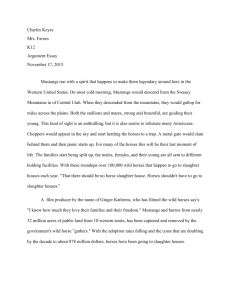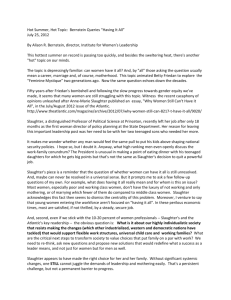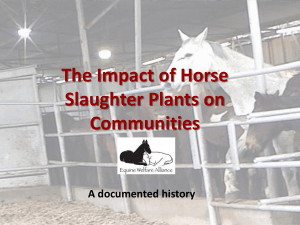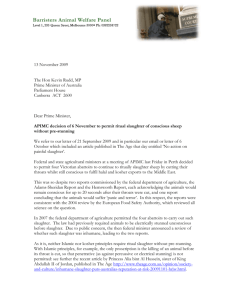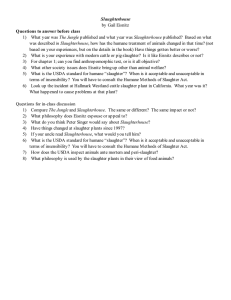John Holland - Equine Welfare Alliance
advertisement
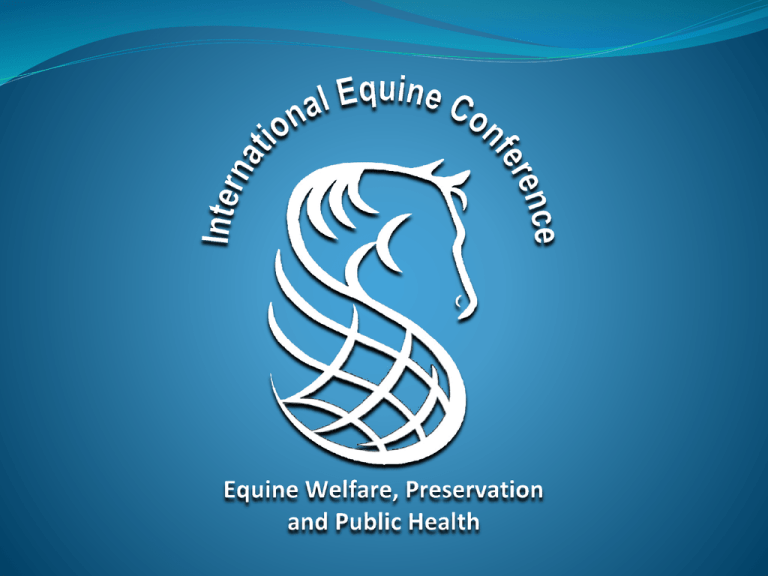
John Holland, President A Brief History of Horse Slaughter in the US During the 1980’s, there were about 16 slaughter houses in the US. During the 1990’s slaughter declined rapidly and by 2000 there were only three left. In 2007, state and federal legislation shut down the remaining three. Exports of slaughter horses to Canada and Mexico quickly made up for the closures. Proponent’s Claim that Slaughter Reduces Abuse and Neglect Would their trips to slaughter be shorter? Would APHIS protect them from abuse? We have always exported horses to Mexico and Canada The trips within the US were already excessively long Did APHIS Protect the Horses at the US Plants? The following images were obtained from the United States Department of Agriculture under a FOIA request by Julie Caramante of Animals’ Angels. These are only four of 900 such images. WARNING! THEY ARE VERY GRAPHIC Foals are commonly born in route or on the slaughter floor. Horses were sometimes intentionally blinded by kill buyers to make them more manageable. Conclusions: Historically horse slaughter has never had a beneficial effect on abuse, abandonment or neglect. Horse slaughter has never been anything but a brutal process. Equine neglect is influenced almost entirely by economic conditions Slaughtering 100,000 horses a year has not offset the negative impact of the great recession. What is the EWA? The Equine Welfare Alliance is a dues free umbrella organization. EWA has 200 member organizations We have members in 16 countries We provide research, resources, alerts, press releases and other information to help equine advocates protect wild and domestic equines.


